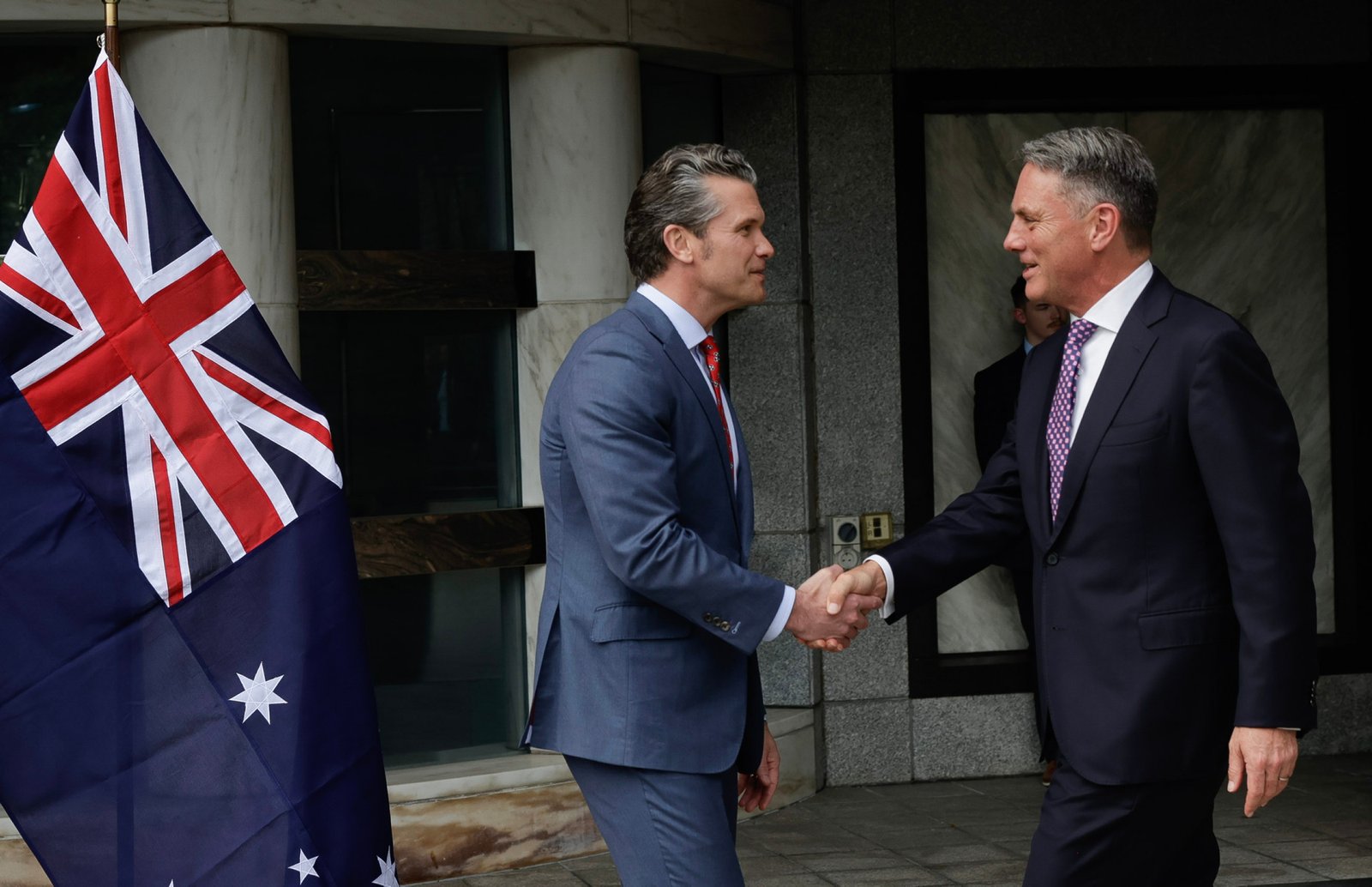The Albanese government’s relationship with the Trump Administration is a mess of contradictions – needy, dismissive and critical. It’s hard to see this as working well for either nation, and America probably cares less than Australia does.
It is now six months since Donald Trump returned to the White House, yet he and Australian Prime Minister Anthony Albanese have yet to do more than exchange hurried phone calls. In more stable times and with a less mercurial, grievance-driven US president, this wouldn’t matter.
Albanese sounds more like a leader insisting on his nation’s sovereign right to under-invest on its own security because he is banking on American power bailing him out.
However, Trump thrives on face-to-face contact and apparently learns by speaking. His relationship with the UK’s Keir Starmer was built this way, with Trump contacting Starmer before the US strikes on Iran. Albanese has told Australians repeatedly how important direct contact is in key relationships, and has met China’s Xi Jinping in Beijing, Bali and Rio de Janeiro.
The election campaign showed Albanese’s dismissive side towards all things Trump. The Labor machine knew it could tap into voter anxiety about Trump administration controversies by tying Opposition Leader Peter Dutton to “Trump-like” policies. That worked, with Dutton’s help, but it sent damaging messages to Washington.
The most important of those messages was around China and Australia’s level of defence investment, both issues that cut to the heart of the alliance and are at the core of why America embarked on the AUKUS agreement to share nuclear technology and build nuclear-powered submarines with Australia.
On China, Albanese has gained domestic support (notably from the business community) for ending Beijing’s coercive trade embargoes against Australian wine, lobster, beef and wheat. And he has celebrated his positive working relationship and multiple meetings with Xi Jinping.
But the flipside is that he has steered a mile from saying or doing anything that might cause Xi Jinping discomfort, so he’s been almost silent on the security challenge Beijing poses to our region and the wider world. Albanese and Defence Minister Richard Marles went to considerable lengths to downplay any security implications from the three Chinese warships Beijing sent to circumnavigate Australia in February-March (conducting live firing along the way), both emphasising how lawful this was.
The prime minister has been almost silent on the security challenge Beijing poses to our region and the wider world.
Asked during his recent National Press Club appearance about whether China poses a security threat to Australia, the Prime Minister conducted his own circumnavigation, talking instead about diplomacy, relationships, complexity and simple binaries.
In Washington, by contrast, Xi’s China is referred to as the “pacing challenge” when it comes to military power and deterrence. It is driving America to shift focus from Europe and is behind Washington’s demand that allies “step up” on defence investment and military capability.
Albanese being unable to say China is a security threat makes for a poor foundation for alliance cooperation focused on deterring China, and for AUKUS. The whole point of US, UK and Australian cooperation on submarines is to shift the military balance away from China and thus make conflict less likely. That requires AUKUS to be a shared understanding between its partners, which is now obviously in doubt. How can any American president agree to weaken the US Navy’s own submarine fleet by handing over Virginia-class submarines to Australia when they can’t be sure we share the larger objective of acting collectively to deter China?
There’s one other area of policy difference that will be on Washington minds as the AUKUS review happens and as figures like Secretary of State Marco Rubio and Defence Secretary Pete Hegseth engage with Australian counterparts: defence spending.
The Trump administration is now openly calling on its Indo-Pacific allies to match NATO spending increases, which look like taking NATO nations to 3.5% spending on defence and another 1.5% on defence-related investments. Hegseth is leaving no doubts: “With NATO stepping up, we now have a new standard for allied defence that all of our allies around the world should move to”, adding “we can’t want their security more than they do”.
Albanese has dismissed the US position, which again has played well with many Australians watching the Trump administration’s approach to government. But it isn’t likely to work when talking to Washington. There, Albanese sounds more like a leader insisting on his nation’s sovereign right to under-invest on its own security because he is banking on American power bailing him out.
Canberra’s alliance management appears to be determined by a combination of domestic politics and denial. It’s almost as if there is no plan for dealing with the implications of a more demanding and less reliable America. Instead, Canberra’s policy blob seems to be hoping for some return to “business as usual” after Trump.
What happens from here depends on how much independence Australia seeks from America on security and what we are willing to do to achieve it. At current levels of spending, we are becoming more dependent on American power, not less. And the spending the government is allocating to defence is going increasingly to acquiring American weapons and systems, doubling down on that dependency.
At some point, this makes it likely that the Albanese government will need to subordinate more of its foreign and security policies to what seems to be its overriding security priority: maintaining AUKUS. That’s a far cry from an Australia that acts as a more independent and constructive security actor and voice in the world.
